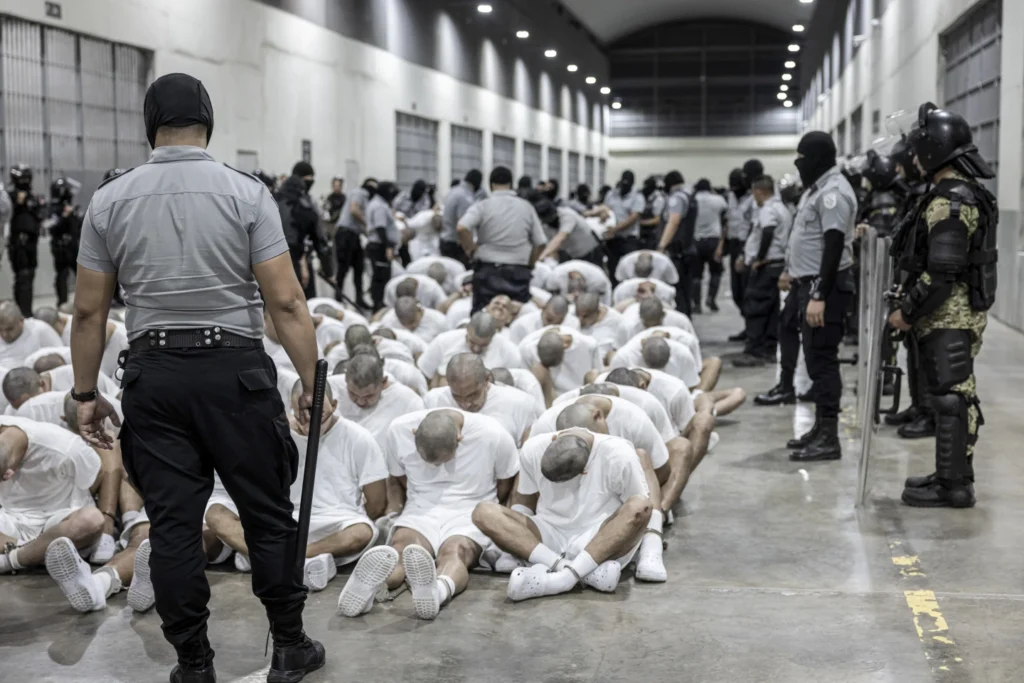WASHINGTON, D.C. — In a high-profile legal escalation, U.S. District Judge James E. Boasberg said Wednesday that there is probable cause to hold the Trump administration in criminal contempt of court, accusing it of willfully violating an order to reverse deportation flights bound for El Salvador. The ruling intensifies an already volatile standoff between the judiciary and the executive branch over the extent of presidential authority on immigration enforcement.

Boasberg, who serves as chief judge of the federal court in Washington, issued the ruling after determining that administration officials acted in defiance of his directive to halt deportations under the Alien Enemies Act. The deportees, including individuals like Kilmar Abrego Garcia, were removed before they had the chance to challenge their deportations in court—some ultimately transferred to a notorious Salvadoran prison.
The judge emphasized the seriousness of the violation, stating, “The Constitution does not tolerate willful disobedience of judicial orders—especially by officials of a coordinate branch who have sworn an oath to uphold it.” He further warned that unless the administration rectifies the breach, contempt hearings may proceed, and a special prosecutor could be appointed if the Justice Department declines to act.
Boasberg’s order comes as tensions rise between Trump allies and the judiciary. President Trump and members of his party have openly criticized federal judges, even calling for Boasberg’s impeachment—prompting a rare defense from Chief Justice John Roberts, who insisted judicial disagreement does not warrant removal from office.
According to court records, Boasberg had ordered a halt to all deportations under the centuries-old Alien Enemies Act, which Trump invoked in response to what he called an “invasion” by members of the Venezuelan gang Tren de Aragua. The judge explicitly told officials to reroute planes already en route to El Salvador. Despite the order, El Salvador’s President Nayib Bukele confirmed the deportees’ arrival with a dismissive post on social media reading, “Oopsie… too late.”
The administration later argued the judge’s turnaround instruction was not part of his formal written order and that the planes had already departed U.S. airspace when the verbal directive was issued. However, Boasberg dismissed that defense, stating that the administration’s actions “betrayed a desire to outrun the equitable reach of the Judiciary.”
Although the Supreme Court has since overturned Boasberg’s temporary injunction on constitutional grounds—finding that deportation challenges must proceed in Texas rather than Washington—it upheld the requirement that deportees be allowed to contest their removal before being sent out of the country. The judge made clear that the Supreme Court’s decision did not absolve the administration of the responsibility to follow his original order at the time it was issued.
In another related case, the administration admitted to deporting Abrego Garcia despite a Supreme Court ruling that required officials to facilitate his release. So far, officials have made no moves to bring him back to the United States, and a separate judge is weighing potential contempt charges.
Boasberg stated that the government could still avoid criminal proceedings if it takes custody of the deportees in El Salvador to allow them access to the U.S. legal system. However, he acknowledged that how this could be accomplished remains unclear.
The White House has maintained a firm stance, with communications director Steven Cheung posting on X (formerly Twitter) that President Trump remains committed to removing “terrorists and criminal illegal migrants” from American communities.
This case has become emblematic of the broader legal war between the Trump administration and the federal judiciary, as courts continue to challenge the boundaries of executive power, particularly over immigration policy. Boasberg concluded his ruling by stating that despite multiple chances to comply or justify their conduct, the administration failed to offer any satisfactory explanation for defying the court’s authority.


